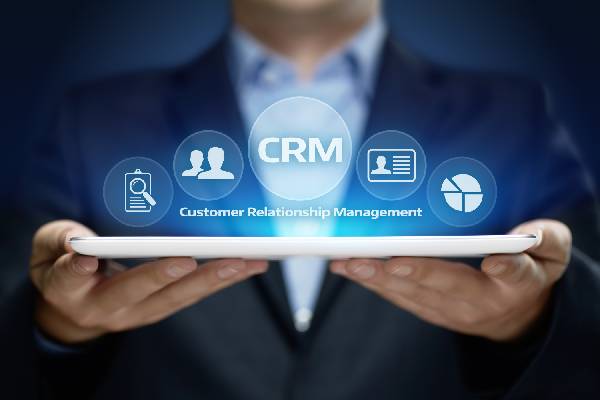By design, a Customer Relationship Management (CRM) strategy is always reacting to changes in customer behavior. Yet the sudden onset of the pandemic has brought about significant adjustments to what and how hotels communicate to their guests.
Contributed by Juliana Shallcross
From detailing COVID-19 protocols to extending loyalty status and enhancing booking convenience, hotels are quickly adapting to the somewhat fragile post-pandemic mindset of their guests.
“It’s been fascinating for us to see how the past two years have changed people and how that has directly affected the way we will innovate,” said Jenn Chick, vice president and global head of Hilton Honors and Customer Engagement.
Listening to feedback
Citing Hilton’s latest report—The 2022 Traveler: Emerging Trends and the Redefined Traveler, which details how the pandemic has changed guest behavior—Chick said that one way Hilton’s CRM team has responded to the shifts is by combing through feedback to determine what exactly guests are looking for right now.
“At Hilton, we’ve always attentively listened to customer feedback and right now we’ve heard customers want experiences, offers and benefits that they care about,” Chick said. When the search term “pet-friendly” emerged recently as the third-most used search filter on hilton.com, the company began prioritizing pet travel offerings like luxury pet beds and pet amenity programs. Contactless payment and secure sharing of the smartphone Digital Key are other new offerings that emerged from customer feedback.
Hilton has also prioritized flexibility and benefits, allowing Hilton Honors members to retain their points and elite status through 2022. Overall, Chick said utilizing Hilton’s global system-wide promotions during the pandemic has had a positive impact on member retention and guest relations.
Communicating care
For the Denver-based Sage Hotel Management, “CRM has become crucial as it relates to guest sentiment and loyalty with travelers,” said Patrick Pahlke, executive vice president and chief commercial officer. One critical use of CRM has been to communicate a hotel’s protective measures against COVID-19 and to put them at ease during their stay.
“CRM as a marketing tool reinforces to our guests that we do ‘know’ them and their concerns, and that they aren’t just a confirmation number,” Pahlke said.
When it comes to business and group travel, Pahlke said his sales team is making the extra effort to rebuild relationships through in-person meetings, not phone calls.
“This sets a ripple effect with clients, it shows how important their business is, and that our sales team feels comfortable with traveling again,” he explained.

Seeking like-minded partners
To reach new guests and travelers as they launch three new brands, The Banyan Tree Group is partnering with like-minded organizations in one of their company’s key initiatives for 2022, “Collaborate to differentiate.” In the past year, The Banyan Tree Group has formed partnerships with airline associations, retailers, conservation projects, and the UNESCO Sustainable Travel Pledge in the hopes of pulling from the growing segment of sustainably-conscious travelers.
“Our purpose-driven ethos of ‘embracing the environment, empowering the people’ stays true,” said Ho Renyung, senior vice president of Brand HQ for The Banyan Tree Group. “And both repeat and new customers can expect the brand promise of being part of a responsible travel movement.”
Another priority for The Banyan Tree Group is to develop meaningful relationships with customers within a digital landscape, said Renyung, noting that over 60% of customer service touchpoints were online in 2020.
“Our view has shifted from transactional loyalty to experiential loyalty, and customer lifetime value is a metric we are starting to internally track and build,” she said. The Banyan Tree Group is working on branded programs that will build on direct channels featuring their hotels, resorts, golf courses, spas and wellbeing offerings, amongst others, to deliver a holistic digital brand experience.
Keeping it secure
As hotels find new ways to reach customers, concerns about data privacy are growing. A KPMG report released in August 2021 found that 78% of the consumers surveyed were worried about the amount of personal data being collected by companies, and 40% didn’t trust companies to use the data ethically. While this concern hasn’t affected CRM strategies just yet, hotels are triple-checking their security.
For Sage Hotel Management, guests actively control the information they give out and are assured that their details are secure.
“Every data point that is collected has to be authenticated by the guest,” Pahlke said. “Whether it’s a phone number to confirm a dining reservation or a two-point privacy screen for Wi-Fi usage, the guest is aware of what information they are providing at all times.”
Additionally, all of Sage’s websites are hosted on secure servers with extra security measures on the credit card authorization pages.
Hilton, which uses multiple proprietary CRM systems, is strengthening its customer privacy protection through “rigorous testing and validation,” Chick said. Before any new technology is deployed to a Hilton hotel, she adds that it undergoes further internal testing and scrutiny from external security experts. All systems also undergo regular review to make sure they are following the newest applicable laws and privacy regulations.
Making it easy
With more people utilizing online services beyond travel booking, ease of use is a necessity for digital services.
“Convenience is key,” Renyung said. “Which means speed, integration and user-friendliness.” And ease of use doesn’t just apply to the booking process. Renyung said the company is seeing more pre-arrival inquiries than before and are seeking to make these interactions easier as well, similar to a concierge.
But as with everything else since the pandemic entered our lives, customer expectations are still changing.

